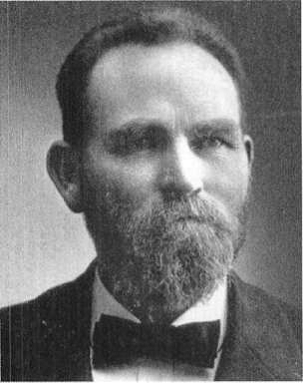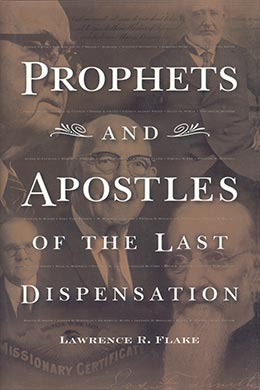Francis Marion Lyman
Lawrence R. Flake, Prophets and Apostles of the Last Dispensation (Provo, UT: Religious Studies Center, Brigham Young University, 2001), 337–39.

Born: 12 January 1840, Good Hope, Illinois
Quorum of the Twelve Apostles: 27 October 1880 (age 40)
President of the Quorum of the Twelve: 6 October 1903
Died: 18 November 1916 (age 76), Salt Lake City, Utah
The Juvenile Instructor carried a summary of Francis Lyman’s youth, which points out how early in life he was launched into the role of manhood: “What an astonishing record of activity and work! Frontiersman at birth and babyhood; pioneer, teamster, and bull-whacker at eight; herdsman and cowboy at eleven; learning a trade at thirteen; plowing the trackless deserts as a leader and captain at sixteen; married at seventeen; exploring the wilds of Colorado at eighteen; a Seventy and a missionary at twenty; with farming, attending school, presiding over improvement associations, building the log cabin of the pioneer, as incidents thrown here and there in between.” [1] The accomplishments of this young man foreshadowed his future of continued energetic service to the Lord. [2]
In 1840 Francis was born in Illinois to Amasa M. Lyman, later one of the members of the Quorum of the Twelve Apostles, and Louisa Maria Tanner. When only a boy of eight, he crossed the plains, driving an ox team in the absence of his father, who had gone ahead with Brigham Young and the first company to the Salt Lake Valley. In 1851 his father moved the family to San Bernardino, California, and while there Francis, who was barely into his teens, made sixteen trips across the desert to Utah with various companies, driving wagons and herding livestock. In 1860 he served a two-and-a-half-year mission to England, leaving his wife, Rhoda Ann Taylor, and their first child in a one-room cabin he had built in Beaver, Utah. On his return trip from England, he became the leader of a company of eight hundred emigrants.
Called in 1877 to move to Tooele and preside over the stake there, Francis Lyman became active in politics, being elected county recorder and also representative to the territorial legislature. In 1880 he was called to make a tour of the branches of the Church in Southern Utah, Arizona, and New Mexico. While traveling in those states, he was chosen to be a member of the Quorum of the Twelve Apostles. As an apostle, Elder Lyman was called to do missionary work among the Native Americans. When he asked President Woodruff for instructions concerning this assignment, the prophet merely said that the Lord would inspire him. Seeking this inspiration, he climbed a mountain and knelt on a plateau-like rock to pray. As if Satan were trying to thwart his mission, a violent wind suddenly arose, and for half an hour Elder Lyman struggled to keep from being hurled off the peak to his death. Finally, in answer to his desperate prayer, the wind subsided and a peaceful spirit rested upon him, revealing to him what course to take in his missionary labors.
Shortly after this experience, Satan again tried to destroy Elder Lyman. While traveling to his mission field, he was seized with excruciating abdominal pain. Miles from medicine or a doctor, he lay in agony with great beads of sweat marking his torture. After two hours of anguish, Elder Lyman received a blessing at the hands of his fellow missionaries and immediately the pain left, permitting him to pursue his journey and teach the gospel to hundreds of Native Americans. He continued to take an interest in them for many years, becoming a well-known teacher and counselor among them.
The members of the North Davis Stake were privileged to hear Elder Lyman’s last stake conference address before his death in Salt Lake City 18 November 1916. As a tribute to this noble man, the leaders of that stake wrote the following: “While we bow in humble submission to the will of God in calling President Lyman from this field of labor to a higher and a greater one, we shall always cherish the words he spoke, shall always remember the upright, God-fearing, blameless life he lived, and shall regard his departure as the closing of a life that was a blessing to all who knew him” [3]
Notes
[1] Edward H. Andersen, “Apostle Francis M. Lyman,” in Lives of Our Leaders: Character Sketches of Living Presidents and Apostles of the Church of Jesus Christ of Latter-day Saints (Salt Lake City: Deseret News, 1901), 110.
[2] Matthias F. Cowley, Prophets and Patriarchs of the Church of Jesus Christ of Latter-day Saints (Chattanooga, TN: Ben E. Rich, 1902), 244–52.
[3] “In Honor of President Francis M. Lyman,” Improvement Era, January 1917, 193.
